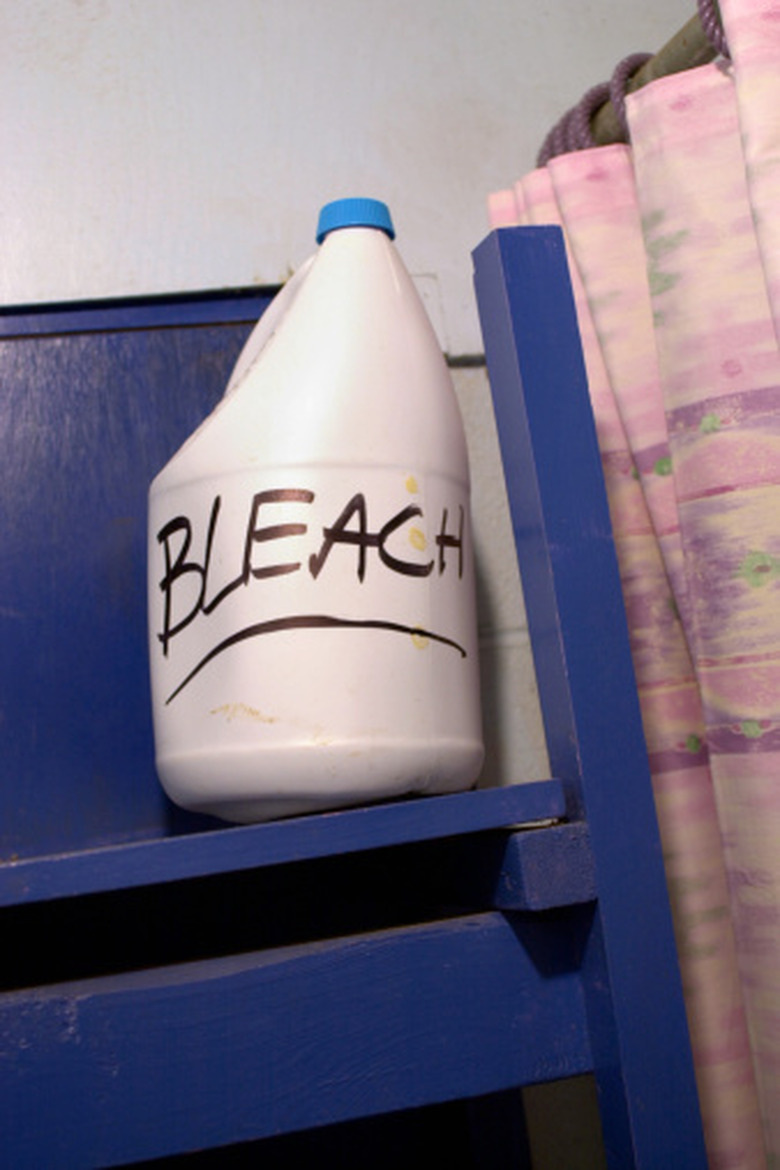Does Bleach Affect Plant Growth?
Bleach will not only affect plant growth, but will most likely kill a plant altogether. While chlorine in small doses is harmless or even beneficial to plants, concentrated chlorine such as bleach will destroy a plant and the network of life that plant depends on to obtain nutrients and thrive.
Effects on Soil Web
Effects on Soil Web
Plants depend on multitudes of fungus and bacteria living in the soil. These microorganisms provide aeration in the soil, help retain water and nutrients, and most importantly help to transfer nitrogen and other nutrients to the plant's root system for uptake. Bleach is used for sterilization purposes, meaning it kills organic matter, which includes those bacteria and fungi necessary for healthy plant growth. Bleach that has found its way to the base of any plant will kill the microorganisms living below it, and the plant will die soon thereafter.
Bleach on Plants
Bleach on Plants
Though not as lethal as bleach in the soil, If a plant comes in direct contact with bleach, especially its leaves, it will be severely damaged. Leaves that have been touched by bleach will quickly turn white, then wither and die. This is because the cells of the leaf are rapidly denatured by the bleach; free oxygen will combine with the cells proteins, quickly causing them to alter and decompose.
Remediation
Remediation
If bleach has been spilled around the base of a plant, the best way to save that plant is to move it. The soil beneath the plant will be useless for some time to come unless amended with a lot of compost or other organic matter. Moving the plant to another location with as little soil attached as possible may save it, depending on the plant's size. If a plant is directly affected by bleach, remove the parts of the plant that have been affected. The plant should not be further damaged by exposure.
Chlorine's Beneficial Side
Chlorine's Beneficial Side
Though bleach is very dangerous for plants in high doses, chlorine is actually an essential micronutrient for plant growth. All plants require chlorine in small doses for healthy growth of their chloroplasts, the part of the plant used for the process of photosynthesis. A deficiency in chlorine will result in a significant slowing of plant growth. For this reason, many fertilizers actually contain chlorine in their makeup.
